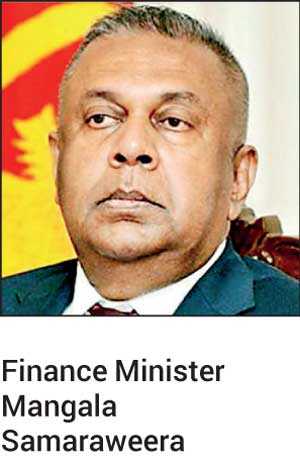Thursday Feb 19, 2026
Thursday Feb 19, 2026
Saturday, 29 June 2019 00:10 - - {{hitsCtrl.values.hits}}
 AFP: Sri Lanka’s tourism industry is recovering faster than expected after the Easter Sunday suicide bombings shook the island nation, giving a much-needed boost to the economy, Finance Minister Mangala Samaraweera told AFP.
AFP: Sri Lanka’s tourism industry is recovering faster than expected after the Easter Sunday suicide bombings shook the island nation, giving a much-needed boost to the economy, Finance Minister Mangala Samaraweera told AFP.
The country was hit by mass cancellations after Islamic State-backed jihadists attacked three churches and three hotels on 21 April, leaving 258 dead, including dozens of foreigners.
Yet even in the bombing’s aftermath, domestic tourists filled hotels, and visitors from key European markets are already starting to return, Samaraweera said in an interview on Wednesday.
Samaraweera had initially predicted that Sri Lanka could lose 30% of its tourism revenues – about $ 1.5 billion this year – but now believes the loss will be less than one billion.
“We are beginning to feel that the situation was not as dire as we expected,” Samaraweera said. “Bookings are coming back.” Hotels were able to keep staff by offering “excellent packages” to Sri Lankan tourists, he added.
The Government also set aside hundreds of millions of dollars to provide cheap credit for tourism businesses hit by the crisis.
Bus companies, bed and breakfast owners and the makers of Buddhist festival decorations all received interest-free loans, the minister said.
“Even the musicians who accompany the processions claimed they were out of pocket,” he said.
After five years in which Sri Lanka has faced a series of blows, Samaraweera said the economy could get to 5% annual growth from next year if calm was restored.
“The last five years have not been easy for Sri Lanka,” he said, referring to floods and then a drought, which were followed by a political crisis in 2018 and the 2019 attacks.
Sri Lanka’s economy slowed to 3.2% last year, down from 3.4% in 2017, because of a power struggle between the country’s President and Prime Minister.
Samaraweera told Parliament this year that the political battle had cost the economy $1 billion in capital flight from debt and equity markets.
The International Monetary Fund has since revived a bailout program with Sri Lanka, and the Government resumed international sovereign bond sales in March.
“I hope that for this year we can come back to 3.8-4.0% growth, and in the next two years if it was five percent we would be happy.”
Sri Lanka raised $2.0 billion this week in its first international bond auction since the bombings.
The minister said the interest rates were lower than for a $2.4 billion auction in March – before the attacks – and this showed confidence in Sri Lanka’s ability to bounce back.
“The international community has shown that they still have confidence in the good macroeconomic foundation we laid,” he added.
Sri Lanka heads for a presidential election later this year, which could set off new political battles.
Economic activity usually spikes in an election year, partly because of increased Government spending.
Samaraweera said he may not present a full 2020 budget by November as scheduled and instead present a temporary account to cover expenses of the first three months of the year.
He said he wanted to allow a new president to decide on fiscal policy rather than imposing a budget on the future government.